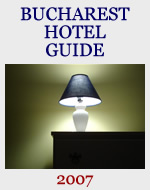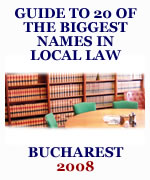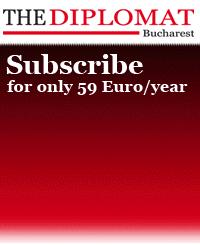Tourism
Tax slash could offer hope to tourism failure
 Another disastrous year for Romanian tourism prompts a call for tax cuts to revive the industry, reports Corina Ilie
Another disastrous year for Romanian tourism prompts a call for tax cuts to revive the industry, reports Corina Ilie
Romania is failing to attract large numbers of foreign tourists and the tour operators are calling for financial incentives to boost the ailing industry.
An appreciating local currency and rising costs are also hitting one of the unique selling points the country offered in the past – the fact that it was cheap.
Over five million foreigners visited Romania during the first nine months of this year.
There are no firm statistics for how many of these came for reasons of leisure. But the National Association of Travel Agencies (ANAT) estimates only around 150,000 foreign tourists stayed in hotels during this period.
Previous research from Eurostat has shown foreign tourist numbers in Romania below countries such as Slovakia and Slovenia – EU nations with a fraction of Romania’s population and size.
Travellers fail to turn up in large numbers to Romania due to the poor state of the road infrastructure and the bad quality services. Compared to other European capitals, Bucharest also has few attractive points of interest.
The appreciation of the leu has raised another obstacle to the industry. It has attacked the package tour sector in Romania.
When accommodating foreign tourists, contracts between travel agencies and hotels are usually concluded one year in advance.
In the last year, the leu has grown in value and this has meant that the cost of travel packages increased by at least ten per cent over the Summer and the Autumn.
But the agencies could not transfer these costs to their customers because they had already agreed the prices for the package tours. Instead, they had to swallow the costs.
To offset such losses, ANAT has proposed to cut VAT for tourism to zero per cent. At present, all tourists, whether they are Romanians or foreigners, pay a nine per cent VAT tax for accommodation and 19 per cent VAT tax for meals.
“We hope that the Government will cut significantly this quota, as most countries with a strong travel tradition have done the same,” says Traian Badulescu, spokesman for ANAT.
Lucia Murariu, state secretary in the Ministry of Small and Medium Enterprises, Commerce, Tourism and Liberal Professions supports ANAT’s proposal, but cannot tap the cash.
Only the Finance Ministry can make this change, but has not included the proposal in its budget for 2008.
This move should cut the prices on travel packages, allowing Romanian travel agencies to create more attractive offers for foreigners. It may also be an encouragement for more entrepreneurs to enter the tourism sector.
“The number of foreign tourists to Romania could increase by up to 20 to 30 per cent per year if the VAT quota is reduced,” argues Badulescu. “Unfortunately, the quality-price ratio makes Romanian offers little attractive. It is not true that prices are very high, but they should be much lower because Romania is not an attractive travel destination yet. Bulgarians applied the strategy of low prices and managed to attract a large number of tourists to their resorts.”
Sweden also slashed taxes on tourism as has France, the world’s most visited holiday destination.
Local travel agencies prefer to sell foreign holidays to Romanians than try to attract tourists from abroad. Incoming trade is a risky business with low profits. Most travel agencies have limited it to only one quarter of their business.
Many agencies are also sceptical about the success of a slashing in VAT. Nicolae Demetriade, manager and owner of tourism agency Happy Tour, believes the impact of a cut in VAT cannot be estimated, because this is only an element of the final price.
He doubts the Finance Ministry will ever support this change.
“The state has never supported tourism,” he says.
“All the industrial sectors have been financed for the past 15 years only for political reasons, without any benefit for the budget, while no funds have been allotted for tourism. The Government forgets that after the EU accession, tourism is one of the industries with unlimited development potential.”
 Another disastrous year for Romanian tourism prompts a call for tax cuts to revive the industry, reports Corina Ilie
Another disastrous year for Romanian tourism prompts a call for tax cuts to revive the industry, reports Corina Ilie
















